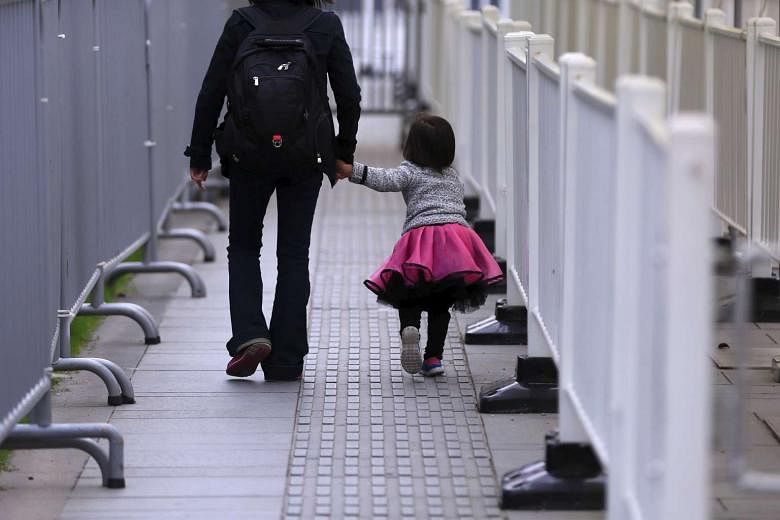BEIJING (AFP) - Less than a year after his daughter was born, Sun Hui was told she would never have a sibling.
It was the late 1970s, and he and his wife, newlywed government officials, had been planning for a second baby when China's Communist Party decided one child was enough for all.
"How could I have felt anything?" said Sun, now 67. "You weren't allowed to feel - the Party spoke, and we party members, we cadres, we had to listen."
China announced the end of its hugely controversial one-child policy on Thursday (Oct 29), after decades of strict, sometimes brutal enforcement left it with an ageing population and shrinking workforce.
All couples will be allowed two children, but the decision comes too late for a generation of Chinese in a country where large families are typically valued as social safety nets.
"If there's only one child in the family and there's a crisis, they'll have a lot of trouble," said Sun, sitting on a bench in a Beijing park. "It's what we call 4-2-1: four grandparents and two parents dependent on one child."
Though ordinary people risked heavy fines in China for each additional child, government employees who broke the rules faced the sack, and ostracism by their colleagues.
"They wouldn't just punish you individually - your whole work unit would all be blocked from raises and promotions," Sun said. "You'd become everyone's punching bag." Sun's wife led the local branch of the Women's Federation, in charge of educating women about the new one-child policy.
They were caught between Party duty and a steadfast belief in traditional values, but as a family of policy enforcers, they could never have flouted the rule themselves.
Across China, a centuries-old social preference for boys led to sex-selective abortions and infanticide targeting girls in the wake of the one-child policy.
Sun resigned himself to having a lone daughter, despite a preference for a son.
"No matter how I felt about it, what could I have done? I could only live with it," he said.
'Cruel and corrupt'
Campaigners say the new two-child policy does not end the principle of government control over reproduction, and that forced sterilisations and abortions may continue so long as there remain caps on family size.
Nanny Shi Xinmei, 51, recalled harsh enforcement of the policy in her home town of Zhumadian in Henan Province.
Officials would make unannounced visits to women's homes every few months to check for secret pregnancies, she said, and those found to be with child were dragged off for abortions.
"Some were six, seven or eight months pregnant," she said, shaking her head. "There was nothing we could do to help. The officials in our town were particularly cruel and corrupt." Forced abortions continue even today. As recently as 2012, there was a global outcry over bloody photos of a Chinese woman forced to undergo an abortion seven months into her pregnancy after failing to pay a 40,000 yuan fine.
There were small compensations for those who fell in line. Not long after their daughter's birth, Sun and his wife were issued a certificate for their compliance with the one-child policy.
They have received a subsidy ever since - it now stands at 106 yuan (S$23) a month - for what Sun called the "burden we've borne for the country".
That burden threatens to become heavier for the couple and their daughter as they age.
Sun and his wife both came from large families, with four and five siblings each, and wanted the same security for their daughter, choosing for her a husband from a family of five.
"It was a very good thing, because if something were to happen, there'd be more people to help out," he said. "Friends, colleagues - they're not family."

